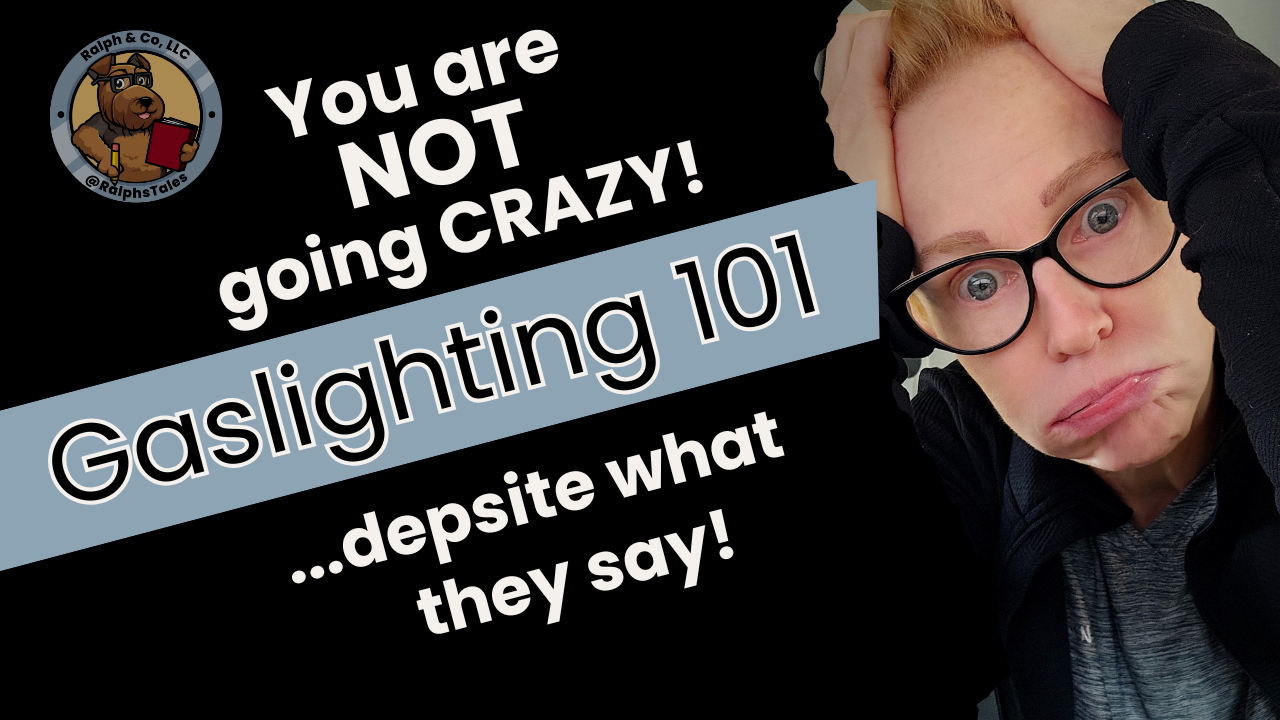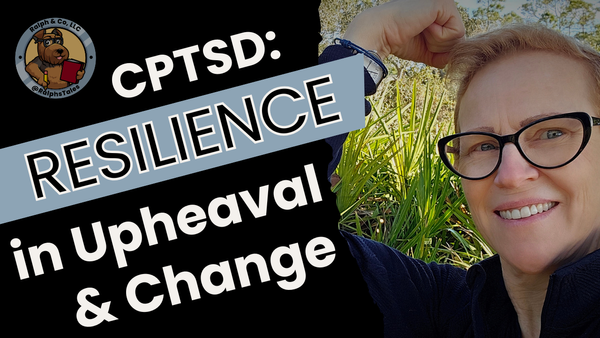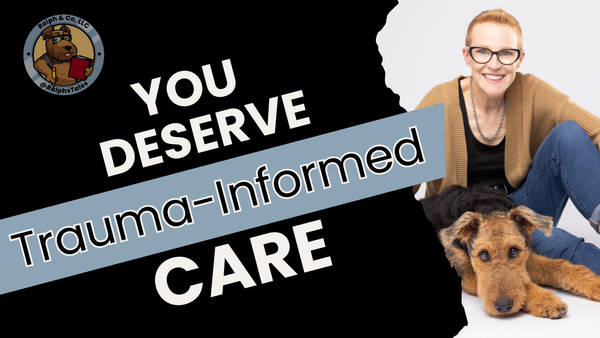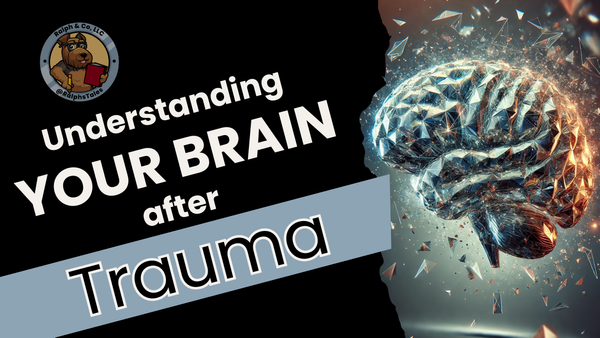Gaslighting 101: Tearing Your Hair Out & Questioning Your Sanity

Gaslighting is a term you may have come across in recent years, as it’s become more widely understood and discussed. It refers to a form of psychological manipulation aimed at making someone question their perception, memory, or reality. This tactic is often seen in abusive personal relationships but also has a powerful presence in our society as a whole. In this post, we’ll delve into the meaning of gaslighting, look at how it manifests in relationships, and explore its broader societal implications, including the concept of “sane washing” used in media and cultural narratives.
What is Gaslighting?
Gaslighting is a type of covert emotional abuse where the manipulator seeks to destabilize someone’s sense of reality, making them doubt their own thoughts, memories, and perceptions. The term originates from Gaslight, a 1938 play (and later a film) where a husband manipulates his wife into believing she’s losing her mind by dimming the gas-fueled lights in their home and denying it when she notices. This form of psychological manipulation can leave people questioning their own experiences, creating confusion, self-doubt, and even fear of their own mind.
Why It’s Harmful
Gaslighting is deeply damaging because it leads an individual to mistrust themselves. Hearing repeatedly that their feelings, thoughts, or memories aren’t real can create lasting psychological effects, including:
- Loss of self-confidence
- Anxiety and depression
- Trauma
Gaslighting often leaves individuals feeling isolated, silenced, and dependent on their abuser, stripping them of the sense of self that is crucial to mental and emotional well-being.
Gaslighting in Interpersonal Relationships
How Gaslighting Manifests
In interpersonal relationships, gaslighting often involves phrases that dismiss or invalidate a person’s feelings and experiences. Common examples include:
- “You’re overreacting.”
- “That never happened.”
- “You’re being too sensitive.”
- “You’re imagining things.”
Over time, these statements create a scenario where the gaslit person questions their own experiences, feeling they’re at fault for noticing or reacting to certain behaviors.
Examples of Interpersonal Gaslighting
The Romantic Relationship
Imagine a situation where one partner consistently lies about their actions or whereabouts and, when confronted, insists the other partner is simply “jealous” or “paranoid.” This ongoing dismissal erodes the gaslit partner’s sense of reality and reinforces dependence on the manipulator.
The Family Dynamic
In family settings, a parent might tell a child, “That’s just in your head” or “You dreamed it,” minimizing the child’s experiences and causing them to suppress emotions. Over time, this manipulation leads to self-doubt and a lack of trust in one’s own mind.
Individual Impact
Gaslighting in personal relationships can result in:
- Self-doubt and shame
- Anxiety and depression
- Dependency on the abuser
Over time, individuals may lose confidence in their ability to interpret reality, leading to isolation and diminished mental well-being.
Societal Gaslighting: A Broader Perspective
What is Societal Gaslighting?
Societal gaslighting occurs when narratives, often propagated by those in power, are manipulated to influence public perception and maintain certain power structures. By reframing or denying facts, these narratives encourage acceptance of misleading information.
The Role of “Sane Washing”
Sane washing is a specific form of societal gaslighting where society, and especially the media, presents an untruth as though it were fact.
- Media Complicity: Presenting both perspectives on an issue as equally valid, even when one is clearly false.
- Manipulation of Narratives: Portraying public figures promoting falsehoods as “sane” or “rational” while making the audience feel as though they are misunderstanding the situation.
Examples of Sane Washing in Media and Culture
-
Media Representation of False Narratives
Politicians might deny scientific evidence or historical events. When the media presents both the fact-based and false narrative as equally credible, it subtly encourages the public to question reality. -
Equating Opposing Messages on Social Issues
Groups advocating for equality and human rights may be pitted against narratives denying systemic issues. This equivalency invalidates the experiences of marginalized communities, gaslighting the public into doubting established truths.
The Long-Term Effects of Gaslighting
Psychological and Emotional Toll
Gaslighting’s long-term impact can include:
- Low self-esteem
- Difficulty trusting others
- Disconnection from reality
Healing from gaslighting often requires personal work, therapy, and rebuilding self-trust to break free from manipulation.
Collective Trauma from Societal Gaslighting
When societal gaslighting targets entire communities, it can result in collective trauma. Marginalized groups may feel unheard and invalidated, struggling to find their voice. Healing requires:
- Community support
- Open dialogues
- Validation of lived experiences
Moving Forward: Recognizing and Addressing Gaslighting
Identifying Gaslighting in Relationships and Society
Recognizing gaslighting starts with tuning into your own perceptions and emotions. Signs of gaslighting include:
- Feeling confused or invalidated
- Questioning your reality after interactions
On a societal level, questioning narratives presented by powerful groups or mainstream media is crucial. Critical thinking and open discussions with trusted individuals can help discern the truth.
Healing from Gaslighting
Healing from gaslighting involves:
- Journaling: Affirm your experiences by writing them down.
- Therapy: Process and rebuild self-trust in a safe space.
- Trauma-Informed Coaching: Learn to recognize manipulation, set healthy boundaries, and rebuild confidence.
Conclusion
Gaslighting, whether in personal relationships or on a societal level, distorts reality, erodes self-trust, and impacts mental well-being. Recognizing and addressing gaslighting is a necessary step toward healing, both individually and collectively. If you’ve experienced gaslighting, remember your feelings are valid, and you deserve support to heal. With tools and understanding, you can break free from manipulation and restore confidence in yourself.
Come Join Us
Surrounding yourself with a supportive community can provide encouragement and strength when you need it most on this healing journey.
- Subscribe to our blog for insights, practical tips, and deep dives into trauma-informed topics delivered directly to your inbox.
- Join us on YouTube @RalphsTales, where we discuss these important topics in a caring community while Ralph romps around spreading serotonin-boosting joy.





